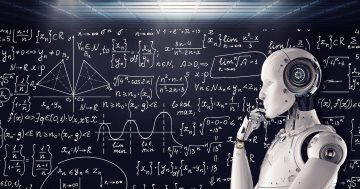
For decades our governments have spent considerable time and money on the education of the masses. The common error in belief is that improving education must correspondingly improve learning. Over the past fifty years during which the Commonwealth Government has ‘put’ money into education little attention has been paid to maximising the learning by individual students. Perhaps the present is the time for that imbalance to be redressed. Whether we, as lifelong students like the fact or not, education is a passive situation whereas learning is a never ending, active mental process.
These days, a high proportion of assessment is done at the completion (by the teacher) of each topic – and a pass is good enough for the student to attend the classes for the next topic! Where the content is more or less descriptive (the lowest level in Bloom’s Cognitive Taxonomy) it probably does not matter. However, where higher cognitive activities are required learning for the next topic it does matter because, without mastery of the prerequisite knowledge, the student is doomed to an even poorer assessment – as has been and is still the situation for too many students! In the real world there is skills-based certification for many occupations: however, this has always been the case for registered tradespeople and those entering highly paid professions. To add to the confounding, little research is devoted to learning; whereas most is on aspects of education. Let us continue then, with some of what is known about learning.
Firstly, whatever we learn has to become related to something we already know, that is, stored in our memory: for which the corollary is that whatever is learnt is retrievable and available for further learning. As a sentient being, I can only learn more based on what I already know. Each new topic requires particular, prerequisite knowledge and without all of that, the new topic cannot be sufficiently understood – a ‘pass’ for the prerequisite knowledge is unacceptable. Each topic must be learnt thoroughly and the only acceptable grade is mastery of the content. This brings us to the next point.
Secondly, the time taken for any student to master (= learn) a particular topic varies according to the student and to the topic. Each of us, in an idiosyncratic way, more or less struggles with learning throughout life! Hereditary and environment have conspired to ensure this continues for the near future.
Thirdly, without a reason to learn, most students remember very little that requires cognitive effort.
Because of our current methods of timetabling and assessment in schools, these three laws of learning are fortuitously followed by a few students and apparently not applicable to the rest. Insisting that every student learns the content of each topic at a pace each learner can achieve mastery does bring numerous benefits to the student. Failure is not an option: each topic is a work in progress. On leaving school, each student receives a certificate with the names of the last topic mastered in each discipline. Other educational institutes can now define their entrance requirements and be sure that all new students are fully prepared. Year 12 public examinations and their statistically massaged results to “prove” that standards are being maintained when they are not, will be unnecessary. Modern technology enables students, even with any of many impediments to learning, to fit in seamlessly with all other students. Students will be able to enter any educational institution at an earlier or later age depending on when they have mastered the prerequisites.




















